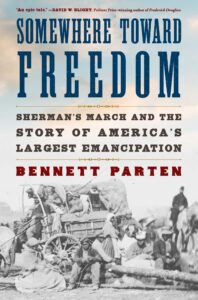
Book Interview with Bennett Parten
Today's Muster features an interview with Dr. Bennett Parten, author of the recently released Somewhere Toward Freedom: Sherman's March and the Story of America's Largest Emancipation. Dr. Parton is an assistant professor of history at Georgia Southern University. A native of Royston, Georgia, Parton's writing has appeared in the Washington ...
Read More
Read More
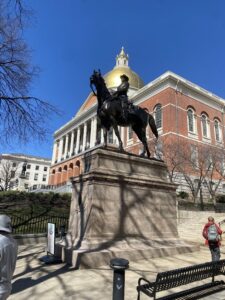
Teaching the Civil War: A Place-Based Learning Approach to Civil War Memory
This post is the second in a new Muster series that will highlight innovative ways that classroom instructors have approached teaching the Civil War era. Today’s post is written by Professor Ian Delahanty and offers a creative approach for introducing students to Civil War-era history through a place-based learning experience ...
Read More
Read More
Interview with Brandon Byrd on JCWE’s Black Internationalism Special Issue
In today's Muster, JCWE associate editor Robert Bland interviews Dr. Brandon R. Byrd, editor and organizer of the journal's December 2024 special issue on Black Internationalism. Dr. Byrd is an associate professor of history at Vanderbilt University and the author of The Black Republic: African Americans and the Fate of ...
Read More
Read More
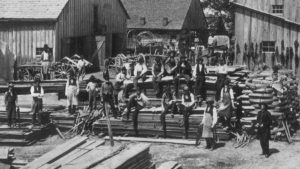
“I remember that Jasper Gray told me that he had herded sheep in Australia”
In 1906, Oscar Nelson, a local African American living in Tennessee, provided testimony on the extraordinary life of Jasper Gray, a United States Colored Troops (USCT) veteran, of the Thirty-First United Colored Infantry (USCI). Gray was a man whose entire life—in bondage and freedom—was one of constant physical movements and ...
Read More
Read More
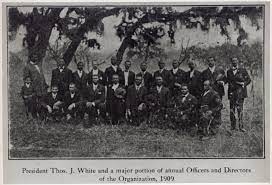
Contested Freedoms: Black Life in Texas During Juneteenth
On June 17, 2021, President Joe Biden, with the stroke of a pen, cemented Juneteenth as a federal holiday in the United States. The momentous occasion was long overdue. Modern advocates, including Ralph Abernathy Lula Briggs Galloway, publicly reignited attention to the importance of Juneteenth to honor the lives of ...
Read More
Read More
Upcoming JCWE Webinars
The Journal of the Civil War Era is sponsoring three webinars with historians in coming weeks. For each event, JCWE editors Greg Downs and Kate Masur will interview the featured historian(s) and take questions from participants. Recordings will be posted on the JCWE's YouTube channnel. Please see below for more ...
Read More
Read More

Emancipation in War: The United States and Peru
On September 22, 1862, a week after the devastating Battle of Antietam/Sharpsburg, U.S. President Abraham Lincoln issued his Preliminary Emancipation Proclamation. Delivered by the lawyer-turned-politician, Lincoln emphasized the reunification of the country, but also set new precedents for the emancipation process. Wartime emancipation proclamations were not unusual. When the gaze ...
Read More
Read More
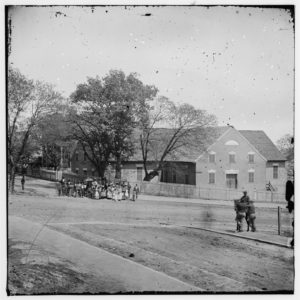
The Politics of Faith: How Contests within Sacred Space Shaped Post-Emancipation Society
In this roundtable, three historians present short excerpts from papers they would have presented at the 2020 meeting of the Society of Civil War Historians, which was cancelled due to Covid-19. The authors featured here explore how the wartime destruction of slavery shaped politics and power within Black churches, between ...
Read More
Read More
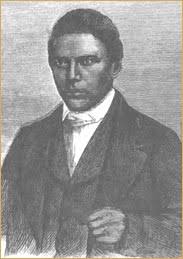
“‘Irregular Secession’: The Political Nature of Religious Space in the Reconstruction-era South
In the early summer of 1865, just a few months after Confederates in Raleigh, North Carolina, officially surrendered, Black Baptists found themselves faced with a choice: submit to white leadership and be permitted to use the roomy sanctuary of the city’s main Baptist church, or refuse and be relegated to ...
Read More
Read More
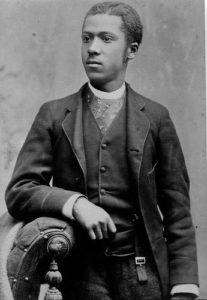
Beyond Speeches and Leaders: The Role of Black Churches in the Reconstruction of the United States
Black churches were at the center of remaking the United States’ post-Civil War political system into one that incorporated formerly enslaved black men into the body politic and revised the legal code to provide civil rights to these new citizens. Black Baptist and Episcopal Churches of Virginia provide insight into ...
Read More
Read More
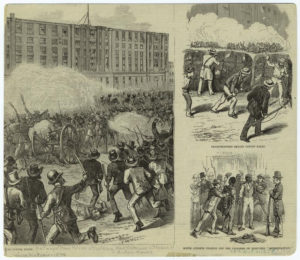
On Riots and Resistance: Freedpeople’s Struggle against Police Brutality during Reconstruction
On May 9, 1867, a festive contest took place in Richmond, Virginia between the local fire department and a visiting fire company from Wilmington, Delaware. A biracial crowd of Richmonders spent the afternoon cheering for their local firehouse and jeering the visiting group. When a white firefighter took offense to ...
Read More
Read More
Labor, Democracy, Law, and International Reconstruction
The three essays posted here relate to a session planned for the June, 2020 meeting of the Society of Civil War Historians. The authors’ abbreviated comments, to be expanded at the rescheduled meeting in 2021, convey tantalizing glimpses of the global scope of America’s post-war Reconstruction. In “Free Labor, Emancipation ...
Read More
Read More
A World “Transfixed”: The International Resonance of American Political Crises during Reconstruction and at Present
The conditions of the global pandemic have made us keenly aware, once again, of the interconnectedness of the world we share. Recent protest movements against systemic racism have radiated from the United States to distant places. Reporting the reactions of people around the world to American events, The New York ...
Read More
Read More
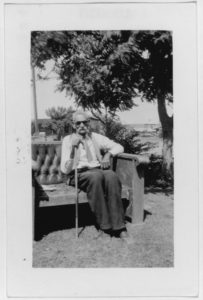
Juneteenth and the Limits of Emancipation
On June 19, 1865, not long after forcing the surrender of Confederate General Edmund Kirby Smith at Galveston, Texas, General Gordon Granger issued General Orders No. 3: “The people of Texas are informed that in accordance with a proclamation from the Executive of the United States, ‘all slaves are free.’” ...
Read More
Read More
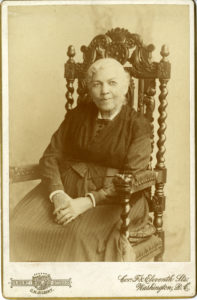
Harriet Jacobs: Working for Freedpeople in Civil War Alexandria
The popularity of the narrative Incidents in the Life of a Slave Girl has only grown since historian Jean Fagan Yellin connected what some believed was a fictionalized account, with Harriet Jacobs’s authentic experiences in slavery and freedom.[1] Multiple versions of the text, and dramatic presentations based on it, abound ...
Read More
Read More
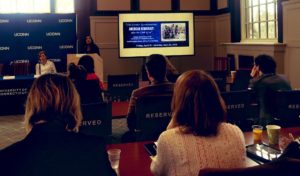
2019 Draper Conference Review: “The Greater Reconstruction: American Democracy after the Civil War,” Part I
On April 19 and 20, the University of Connecticut at Storrs hosted the 2019 Draper Conference on the topic of “The Greater Reconstruction: American Democracy after the Civil War.” The two-day event featured eight panels, consisting of thirty-one paper presentations and a keynote address.[1] All told, the conference revealed an ...
Read More
Read More
